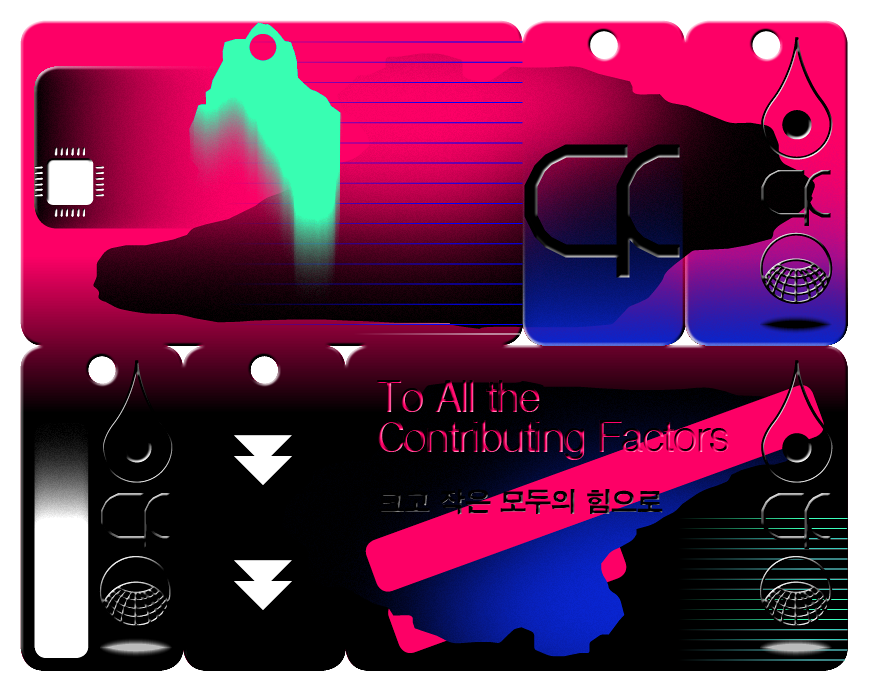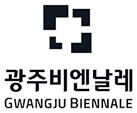September 2–November 6, 2016
Location: Gwangju Biennale Hall, 5 18 Archives, Gwangju International Centre, Mite Ugro and May Mother’s House
With the Biennale Fellows 98Weeks (Beirut), Al-Ma’mal Foundation (Jerusalem), Arts Initiative Tokyo (Tokyo), Artspace (Auckland), Artsonje Center (Seoul), Art Space Pool (Seoul), Ashkal Alwan (Beirut), Asia Art Archive (Hong Kong), Audio Visual Pavilion (Seoul), BAR Project (Barcelona), Beta-Local (San Juan, Puerto Rico), Bétonsalon – Center for Art and Research (Paris), Britto Arts Trust (Dhaka, Bangladesh), Bulegoa (Bilbao), CAMP (Mumbai), Campus in Camps (Palestine), Careof (Milan), Casa Do Povo (São Paulo), Casco – Office for Art, Design and Theory (Utrecht, Netherlands), CCA Glasgow (Glasgow), CCA Tallinn (Tallinn, Estonia), Centre for Contemporary Art, Lagos (Lagos), Centro de Arte Dos de Mayo (Madrid), Chimurenga (Cape Town), Chto Delat (What is to be done?) (St Petersburg), Clark House Initiative (Mumbai), Council (Paris), Cooperativa Cráter Invertido (Mexico City), Delfina Foundation (London), Disclab (Manila), Di Tella (Buenos Aires), Eastside Projects (Birmingham), e-flux (New York), Forum Lenteng (Jakarta), Galerie für Zeitgenössische Kunst (Leipzig), Grizedale Arts (Cumbria, United Kingdom), Art group 705 (Bishkek, Kyrgyzstan), Heem (Busan, South Korea), Henie Onstad Kunstsenter (Oslo), If I Can’t Dance (Amsterdam), Institute for New Connotative Action (Seattle), Institute of Modern Art (Brisbane), The Israeli Center for Digital Art (Holon, Israel), JUBILEE (Brussels), Kadist (Paris/San Francisco), Khoj (Delhi), kim? Contemporary Art Centre (Riga, Latvia), Konsthall C (Stockholm), KUNCI Cultural Studies Center (Yogyakarta, Indonesia), Kunsthal Aarhus (Aarhus, Denmark), Kunsthalle Lissabon (Lisbon), Latvian Centre for Contemporary Art (Riga, Latvia), Les Laboratoires d’Aubervilliers (Paris), Community Space Litmus (Ansan, South Korea), Lugar a dudas (Cali, Colombia), Marabouparken (Sundbyberg, Sweden), Minatomachi Art Table (Nagoya, Japan), Mite-Ugro (Gwangju), Museo Experimental el Eco (Mexico City), Mustarinda (Hyrynsalmi, Finland), National Centre for Contemporary Arts (Ural, Russia), Nile Sunset Annex (Cairo), NTU CCA Singapore (Singapore), OCAT Shenzhen (Shenzen, China), Office of Culture and Design (Manila), Open School East (London), P74 (Ljubljana, Slovenia), Pages Project/Magazine (Rotterdam/Tehran), Para Site (Hong Kong), Pathshala South Asian Media Institute (Dhaka, Bangladesh), Portes et Passage (Joal, Senegal), Pro qm (Berlin), RAW Material Company (Dakar), REDCAT (Los Angeles), Riwaq (Al Bireh, Palestine), ruangrupa (Jakarta), SA SA BASSAC (Phnom Penh, Cambodia), Savvy Contemporary (Berlin), SBC Gallery of Contemporary Art (Montreal), SPOT Projects (Istanbul), Spring Workshop (Hong Kong), ST PAUL St Gallery (Auckland), Townhouse Gallery (Cairo), Taipei Contemporary Art Center (Taipei), Talking Art (Seoul), Tensta konsthall (Tensta, Sweden), TEOR/éTica (San José, Costa Rica), The Bamboo Curtain Studio (Taipei), The Book Society (Seoul), The Center for Land Use Interpretation (Los Angeles), The Common Guild (Glasgow), TheCube Project Space (Taipei), The Reading Room (Bangkok), The Showroom (London), Times Museum (Guangzhou), tranzit.hu (Budapest), tranzit.cz (Prague) Triangle (New York), Triple Canopy (New York), Vitamin Creative Space (Guangzhou), Western Front (Vancouver), What, How & for Whom / WHW (Zagreb, Croatia), Witte de With (Rotterdam), and Work on Work (Seoul)
Among the speakers are Han Kang, novelist and the author of The Vegetarian and Human Acts, among many others; Hu Fang, poet and co-founder of Vitamin Creative Space; Andrea Philips, art theorist and PARSE Professor of Art and Head of Research at the Valand Academy, University of Gothenburg; and Shin Ji Young, researcher and the author of Minority Commune.
The Forum will take place at several locations, including the Gwangju Biennale Hall, 5 18 Archives, Gwangju International Center, Mite-Ugro, and May Mother’s House.
Curated by Binna Choi and Maria Lind.
“To All the Contributing Factors” is a forum organized as part of the 11th Gwangju Biennale, titled The Eighth Climate (What Does Art Do?), discussing works by small- and medium-scale art organizations across the world with regards to questions of value, continuity, and scale, and imagining acts in common.
Roughly one hundred small- and medium-scale art organizations whose work makes important contributions to the art of today are invited as the Biennale Fellows. While being “appointed” Biennale Fellows, they simply go on doing the great work they are engaged with in their own contexts—placing art center-stage there—without being concretely involved with the biennale in Gwangju. Distinct from bigger-scale art organizations such as museums, art fairs, and biennales, these organizations often function as the research and development department of the art world, generating new ideas and shaping new curatorial and educational methods. Above all, they actively support artists to experiment and cultivate their practices and nurture contact and conflict zones around themselves, including neighbors and various practitioners from other fields.
Yet the significance of their works is not fully acknowledged in a wider art and social ecology, while their self-determined “marginal” or “minor” positions, as well as increasing precarity in the climate of austerity and various crises, are palpable. What if we “connect dots” through such a “molecular campaign” and manifest a critical mass to commit to these shared concerns?
The Forum together with the Fellows call for the gathering of all those who are interested in and working with art through such organizations. It is planned as a meeting ground where a large-scale event can be the occasion for exchange and debate among smaller agents, beyond biennial routines such as representation, promotion, and city branding. The Forum takes place from September 2 to 4, after the preview of the 11th Gwangju Biennale exhibition, and consists of public readings, lectures, workshops, and a plenary session. Sharing common issues from post-fossil aesthetics to parallel pedagogies; gentrification; labor point of view; new relation between machine, animal, and humans, and specific artistic agencies in them; exchanging and exploring common organizational concerns; and different working methods and tactics, a new multi-organizational field might take shape.
All individuals and organizations can participate in the forum, with no fee, but registration is necessary. The deadline for the registration is July 30. To register, please click here and indicate which days you will be present.
For further inquiries about the Forum, please contact Mihyun Jang at mihyun.jang [at] gwangjubiennale.org.
Gwangju Biennale
111 Biennale-ro, Buk-gu
500-845 Gwangju
Republic of Korea
T 82 62 608 4114


